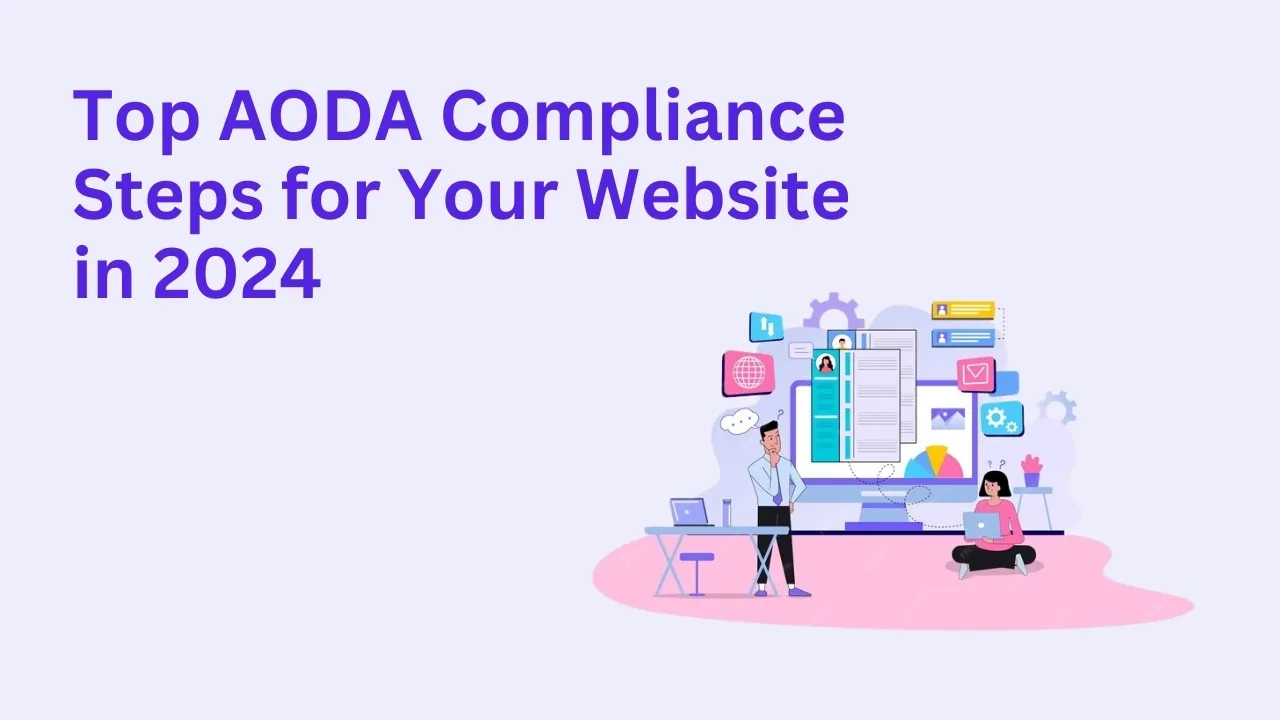Top AODA Compliance Steps for Your Website in 2024

Ensuring your website is accessible is not just about meeting legal requirements; it’s about providing an inclusive experience for all users. Here are key steps to achieve AODA compliance in 2024:
1. Implement Accessible Navigation
Ensure that your website’s navigation is easily usable with keyboard shortcuts and screen readers. This includes:
- Providing clear and consistent navigation menus.
- Ensuring all interactive elements are accessible using the keyboard alone.
- Using ARIA (Accessible Rich Internet Applications) landmarks to improve navigation for screen reader users.
2. Use Descriptive Alt Text for Images
All images on your website should include descriptive alternative text (alt text). This helps users with visual impairments understand the content and purpose of images. Ensure:
- All images have relevant and concise alt text.
- Decorative images use empty alt attributes (alt="") to prevent unnecessary screen reader announcements.
3. Ensure Text Contrast and Readability
Text must be easily readable for all users, including those with visual impairments. Follow these guidelines:
- Maintain a high contrast ratio between text and background colors (minimum 4.5:1 ratio for normal text and 3:1 for large text).
- Use legible font sizes and styles.
4. Provide Captions and Transcripts for Multimedia
Multimedia content should be accessible to users with hearing impairments. To comply:
- Include captions for all videos.
- Provide transcripts for audio content and video dialogues.
5. Create Accessible Forms
Forms should be easy to navigate and complete for all users. Ensure:
- Forms have properly labeled fields with clear instructions.
- Error messages and validation prompts are accessible and understandable.
6. Test with Screen Readers and Accessibility Tools
Regularly test your website using screen readers and other accessibility tools to identify and fix issues. This includes:
- Testing with different screen readers like JAWS, NVDA, or VoiceOver.
- Using automated accessibility testing tools and manual testing techniques.
7. Keep Accessibility in Mind During Updates
Whenever you make updates or add new content, ensure that it remains accessible. This includes:
- Reviewing new content for accessibility issues.
- Training your team on accessibility best practices.
By following these steps, you can help ensure your website meets AODA standards and provides an inclusive experience for all users.








